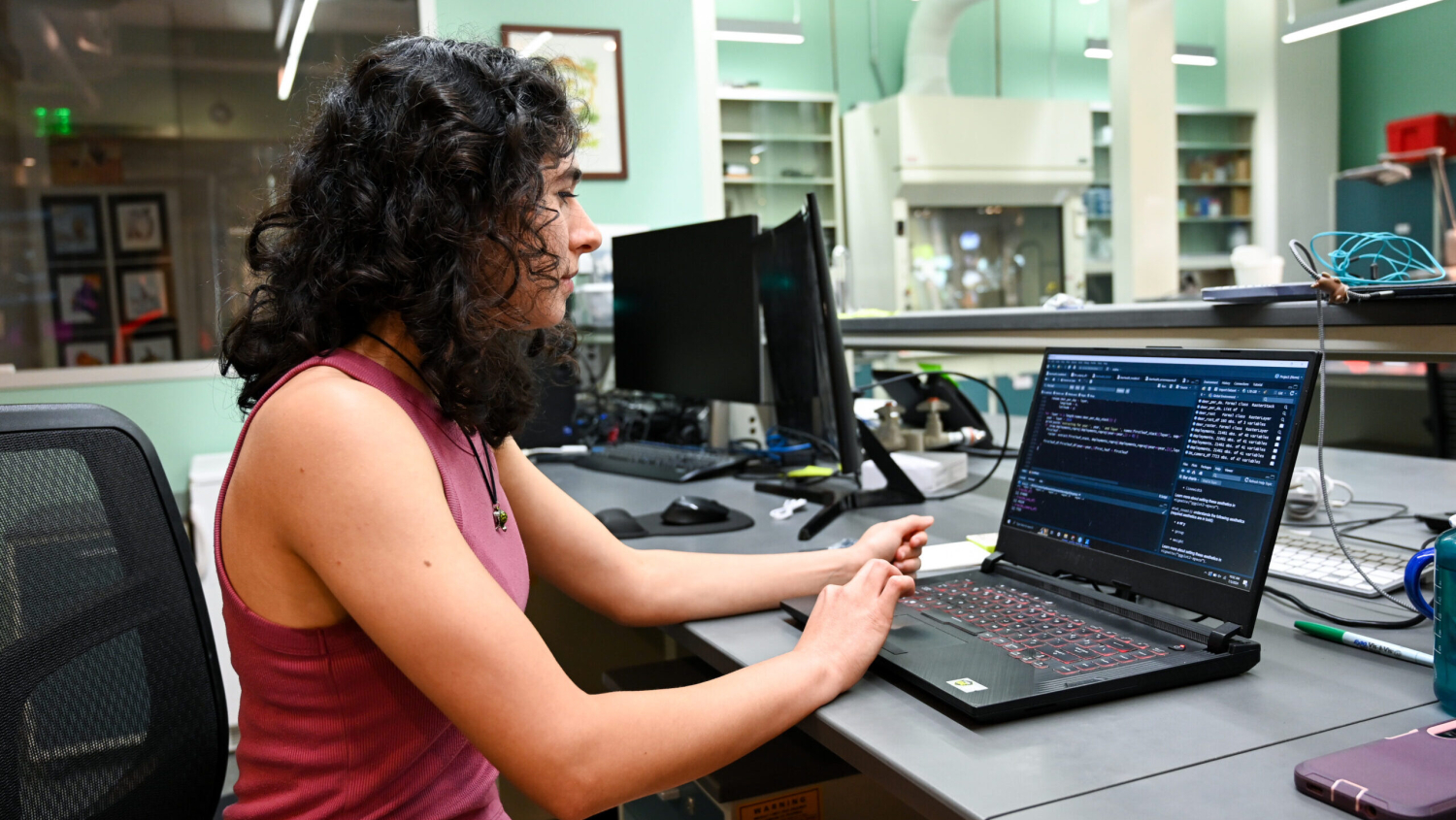Adira Cohen is a second-year PhD student in the Statistics Department at NC State University. In the spring, Adira was offered the Summer One Health Internship on Wildlife Health at the NC Museum of Natural Sciences. This internship was developed in partnership with the Global One Health Academy and the Museum. Last week, we had the chance to visit Adira on-site to learn more about her research and internship experience.
About Adira
When it comes to data, Adira is no stranger to coding and modeling. Adira Cohen is a second-year NC State PhD student in Statistics with a BS in Computer Science and Mathematics from the University of Massachusetts Amherst. She grew up in Amherst, MA, and enjoys drawing and outdoor activities such as hiking, camping, and caving. Having grown up near the woods, she has always had an affinity for nature and the environment. During her undergraduate degree, Adira confirmed her passion for ecology while participating in a project studying mosquito populations and the diseases they transmit to birds. As a PhD student, Adira hopes to continue to hone her statistics skills while also providing valuable insight into various ecological problems.
Studying Wildlife Health
As the Wildlife Health intern, Adira works under the supervision of Roland Kays, NC State Research Professor and Head of the Biodiversity Research Lab at the Museum. At this internship, Adira spends her days studying deer health from camera trap photographs. Animal health can be assessed in pictures related to their general body condition and certain diseases that affect their fur, such as mange.
Using AI algorithms, the Biodiversity Lab has produced deer health data based on over 370,000 camera trap photos captured across the United States. Through AI analysis of these photos, the lab has developed and identified deer health scores ranging from one to five, with a score of one representing poor health and a score of five representing great health.

Adira helps assess overall deer health through coding and modeling in R. Based on the competency levels assigned by the AI, she is working to get a more accurate health prediction. In addition to assessing deer health data, Adira is also studying additional datasets, including deer location, total greenery, wolf populations, and more. By organizing the data, Adira is helping the Lab develop a more complete analysis, capable of providing novel insights into overall deer heath.
“I am having a lot of fun learning about where this data came from and all the nuances that go into it,” said Adira. “The results have been exciting. It looks like there could be some broader implications for chronic wasting disease.” Chronic wasting disease, commonly referred to as “CWD” is a serious disease in animals, such as deer, elk, moose, and reindeer. It is a type of prion disease, a fatal and transmissible brain disease in mammals. CWD can be passed down to offspring and remains active even after the infected animal has passed away. Symptoms, such as drastic weight loss, stumbling, drooping ears, and listlessness, can take months to years before they appear. However, the disease can not be diagnosed by symptoms alone and requires testing. Therefore, it is vital to identify and report sightings of sick deer to help identify external threats and provide appropriate solutions to conserve these populations.
Adira Cohen’s statistical analysis background proves invaluable for the NCMNS Biodiversity Lab as she organizes large swaths of data, identifying patterns and drawing novel conclusions on deer health. Moving forward, Adira hopes to contribute to a research paper related to the findings from this data, and in the fall, she will enter into the second year of her PhD. Through her strong statistics and ecology background, Adira will continue to offer valuable insights into various ecological issues that may arise over time.
This post was originally published in Global One Health Academy (GOHA).
- Categories:



